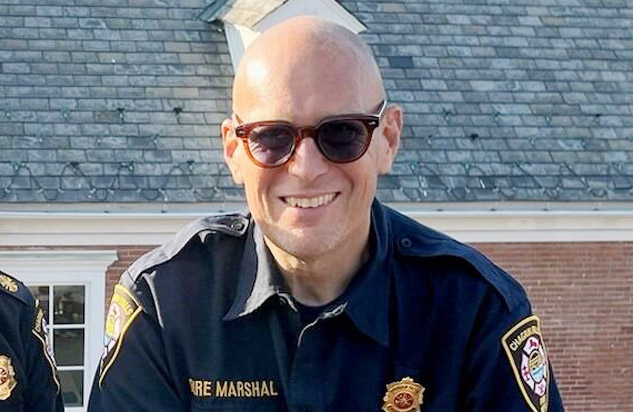Jim Finley
Many thanks to the American Society for Transplantation and Cellular Therapy for helping us share Jim’s story.
You’ve spent decades helping and protecting others as a firefighter and in the military. Has that posed any challenges in prioritizing your own health?
As firefighters, we’re used to taking care of everybody else. Nothing ever happens to us. My attitude was always – I’m just going to keep doing my job until I die of old age.
Most firefighters, all these women and men, are in decent shape and physically on top of our game. When something actually happens to one of us, it’s a shock. When I got sick, I didn’t even know how to swallow pills. I’d never been sick!
It took other people to recognize my problem. I hadn’t felt right for months, tired and losing weight. Finally, one Sunday, I was at a friend's pool, and the consensus was I didn’t look good. And I was exhausted. I finally emailed a buddy of mine, an ER doctor. He set me up to get blood drawn. When I went to do the labs, I was on duty. I’d driven the fire car to the hospital. I thought it would be easy, in and out.
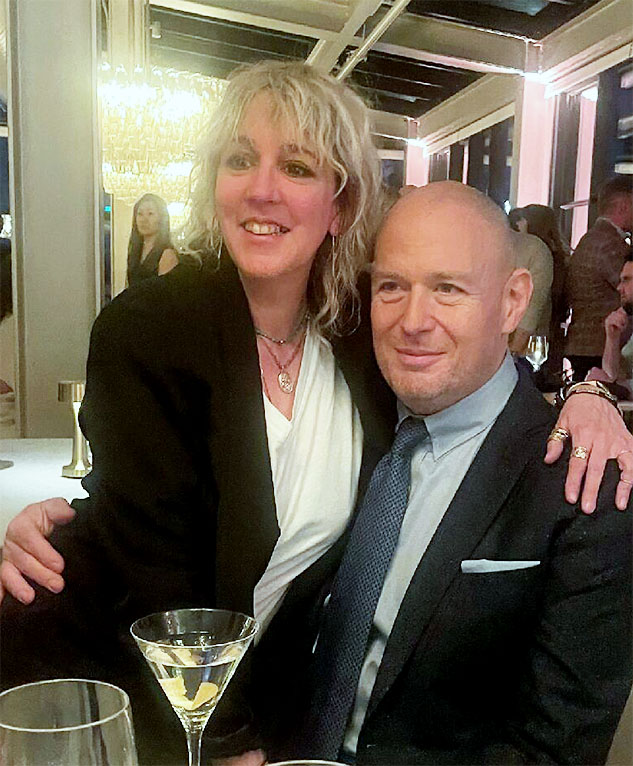 Then the labs came back, and some doctor brought me into a room. It was quiet and nicely painted with soft lighting. And I could tell, I just knew, this is a room for bad news. The doctor told me, “It’s some cancer, we don’t know what kind yet. We need to get you into Seidman [University Hospitals Cleveland, Seidman Cancer Center].” I was thinking, ok, I probably should call my wife. On the phone, I told her “Elizabeth, you need to leave work, and get here.” I didn’t tell her about the diagnosis because they didn’t even know what kind of cancer it was yet.
Then the labs came back, and some doctor brought me into a room. It was quiet and nicely painted with soft lighting. And I could tell, I just knew, this is a room for bad news. The doctor told me, “It’s some cancer, we don’t know what kind yet. We need to get you into Seidman [University Hospitals Cleveland, Seidman Cancer Center].” I was thinking, ok, I probably should call my wife. On the phone, I told her “Elizabeth, you need to leave work, and get here.” I didn’t tell her about the diagnosis because they didn’t even know what kind of cancer it was yet.
Next, I texted my chief, “It’s some sort of cancer. They want to transport me downtown.” He said, “Oh no, we’re transporting you downtown.” They sent one of our rescue squads. The whole time, I was sort of stunned, thinking it was a mistake; they’re going to figure out they made a mistake. They say your world turns upside down. Mine sure did. Before this happened, I didn’t know anything about cancer, nothing.
As a firefighter, were you at any particular risk for developing cancer?
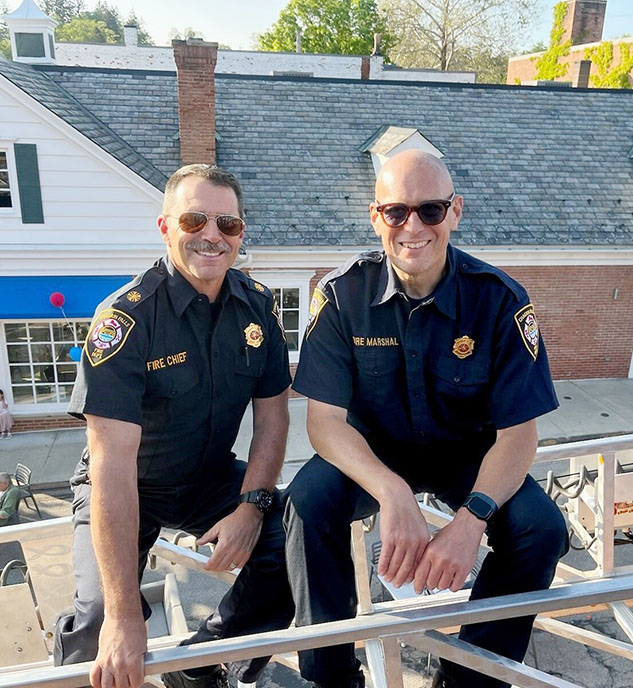 One in four firefighters is going to get some kind of cancer in their lifetime. Primarily, it’s due to exposure to chemicals. If you take your mask off before the smoke has really cleared, you’re breathing in toxins. When you sleep at the fire station at night, if you leave your bunker pants next to the bed, those fire retardant materials are off-gassing; it’s a problem.
One in four firefighters is going to get some kind of cancer in their lifetime. Primarily, it’s due to exposure to chemicals. If you take your mask off before the smoke has really cleared, you’re breathing in toxins. When you sleep at the fire station at night, if you leave your bunker pants next to the bed, those fire retardant materials are off-gassing; it’s a problem.
And change is slow. Firefighters are dumb, and we’re stubborn. But finally, this is improving. In the last 10 or 15 years, there’s been a big push for safer protocols.
Now I’ve got a European-style fire helmet because the regular kind is not very protective. When I first wanted that style helmet, one chief said, “I can’t fault you for wanting something that exceeds safety standards, but we’re all going to make fun of you for it.” It just takes us a long time to learn. But we’re getting there.
Ultimately, though, this cancer was attributed to my military career.
You saw active duty in Iraq, Kuwait, and Syria, among other places. Can you talk about what drew you into service and whether surviving in those environments prepared you in any way for cancer treatment?
I joined in 2003, in the wake of 9/11. When I joined, it was with a bunch of other firefighters. We were angry about the loss of first responders. And then we’re in Iraq fighting, and we came to understand later that they {Iraq} had nothing to do with 9/11. You feel like, hey, what are we doing here?
I was part of a sniper platoon. I was the navy medic in the 3rd battalion, 25th Marines. Our battalion had a terrible distinction: We were the heaviest-hit unit since Vietnam. I’d gone into the military a little bit older, so I knew what I was getting into.
It was in Iraq, August 1st, 2005— that was game over for me. That day, we were hit by a suicide bomber using 700 pounds of explosives. We were in an armored vehicle, and still, my lungs burst. I came home with four chest tubes. And I was “the lucky one.” [On the day described, multiple civilians were killed, as well as 6 Marines; 5 in an ambush and one in the armored vehicle].
After the bomb, I felt fine and recovered. I was the same person I had been. I joined the fire department again. Within my first year at home, I met Elizabeth, and we married. I returned to life.
Even though I survived so much there, I don’t think it prepared me for cancer. Recently, I had to speak at a fundraiser for the American Cancer Society; my whole speech was about the mental side of cancer and how hard it is. I came home the same guy from Iraq, but after cancer, I’m not the same person.
Ultimately, your B-cell Acute Lymphoblastic Leukemia was treated with hyper-cvad chemotherapy and a stem cell transplant in 2022. What was it that made recovery from cancer and a stem cell transplant, for you, more challenging than combat? And what has helped you through?
In Iraq, I understood my injuries. I knew what I needed. I was a firefighter and a medic. I remember one of the guys in the evacuation helicopter asked, “What do you need?” And I said, “I need a chest tube.” I knew if we could make it to the hospital, I’d be ok.
But when your body starts making the wrong blood, how will you fix that? I don’t know how to put a splint on cancer. The idea that my own body would turn against me was way beyond my scope.
Plus, I still thought I was invincible. I was on the brink of being 50 but in very good shape, so my medical team said, “We’re going to treat you like you’re 40!” I thought, great! Give me the toughest chemo.
After the first round, I thought, “This is no big deal”!’ After round three, things were getting difficult, and it just kept getting worse. But I was so stubborn, acting tough. I wouldn’t take the side effects seriously. Or get the help I needed.
By round five, I thought I was going to die. One day, I was looking in the mirror when my buddy, the ER doc, called, and I said, “I look and feel like I'm dying.” My rescue squad had to transport me downtown; I arrived at the hospital with a hemoglobin of one. I finally got it. After that, I’d go in if I felt too miserable.
Partway through my treatment, I was referred to an oncology psychologist. In talking with her, I burst into tears; I told her, “I’m a firefighter.” She said, “So you’re used to being in control. And now you’re totally out of control.” That was the big thing. Right there.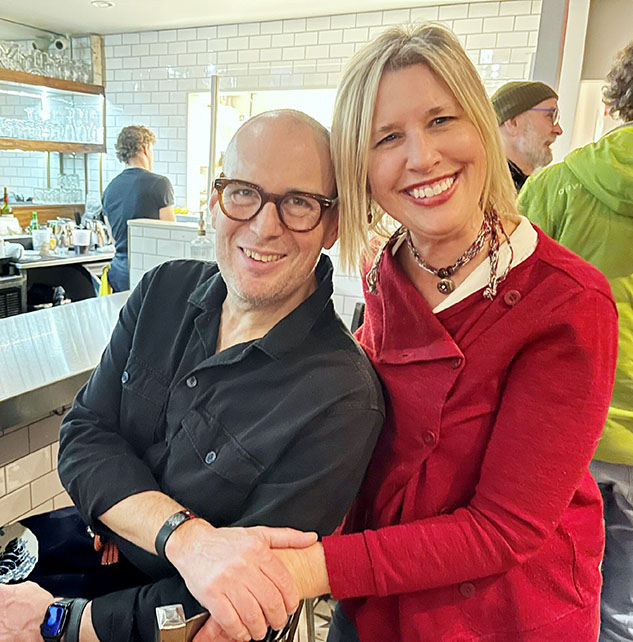
I made it through six rounds of chemotherapy. It was pretty brutal. And then, after a couple of months of remission, the cancer markers popped back up, and they said, “We need to do a stem cell transplant now!” My fire station did a big Be the Match donor recruitment drive for me. Apparently, a good day is if 40 people show up. We had over 200. That’s how firefighters are. We show up for each other.
In the end, we used my sister as a match; she was only a 50% match. Over the years, my sister and I have been estranged; we have just led very different lives. At the beginning of being sick, I reached out to her; I told her what was going on, that I had cancer. And then, when it came time for a transplant, she said, “What can I do?” She donated so generously. And now, we’re back, closer than ever. We get along great. We joke. I told her, “If I commit a murder you’re going down! [since he now has her DNA]”
Has transplant inspired any long-term changes in your mindset?
Physically, I feel stronger, but I lost a lot of armor, and I’m more vulnerable now. I told my therapist, “Could you shut me off emotionally so I can feel invincible again?” My therapist said, “I think it’s great that you have feelings.” And it’s true: I’m more empathetic. When someone’s in distress, I get it.
I remember one of the first calls I went out on after returning to work. It was a young girl, very scared, with a serious infection. She looked right into my eyes, and I knew she knew that I understood her fear. I told her, “We’re going to get you what you need.” Now, I understand when people are in pain or feeling helpless. I’ve been there.
When my doctor, Dr. Cooper, first asked, “What do you do?” and I said, “Firefighter,” she said, “You can't do that anymore.” I remember calling my chief, trying not to cry. I never had feelings before cancer. But now I cry!
I choked up on the phone, he did too. He told me “Listen, you’re going to sit in the command car with me. We’ve got young kids who want to go into the fire.” It wasn’t the way I wanted to go out, but it keeps me working and safe. It’s a different role.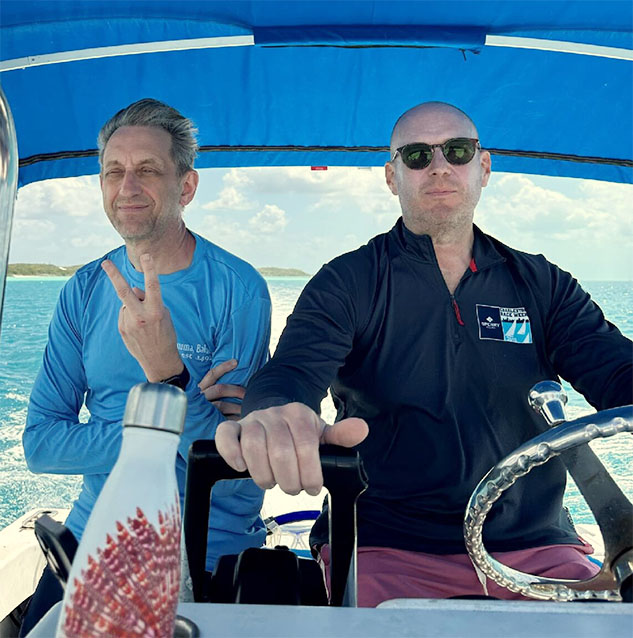
The biggest thing that got me through was the support I had. First, my wife and two friends of ours took such good care of me when I was sick—daily care. Then, the extended community and my department were so good to me that it was overwhelming.
I’m the fire marshal now, and sometimes the fire marshal has to be an enforcer, which is not popular. But even a guy I’d fined donated to my Go Fund Me! I got a year’s salary from that GoFundMe; it was crazy. The attitude might have been, “You’re a jerk, but you’re our jerk!” Most of all, I just didn’t understand – why do you want to take care of me?
Given all the care you’ve offered others, that’s a surprising question. Can you see that perspective?
I don’t know. When I got diagnosed, my chief said, “You're going to survive this, you’re going to learn something from this, and you're going to help other people.” I try to do that now. I just talked to this other firefighter from Detroit. I told him, “Don’t try to tough it out; it’s not going to help you.” That’s my role going forward: to help people soften up and accept help when they need it.
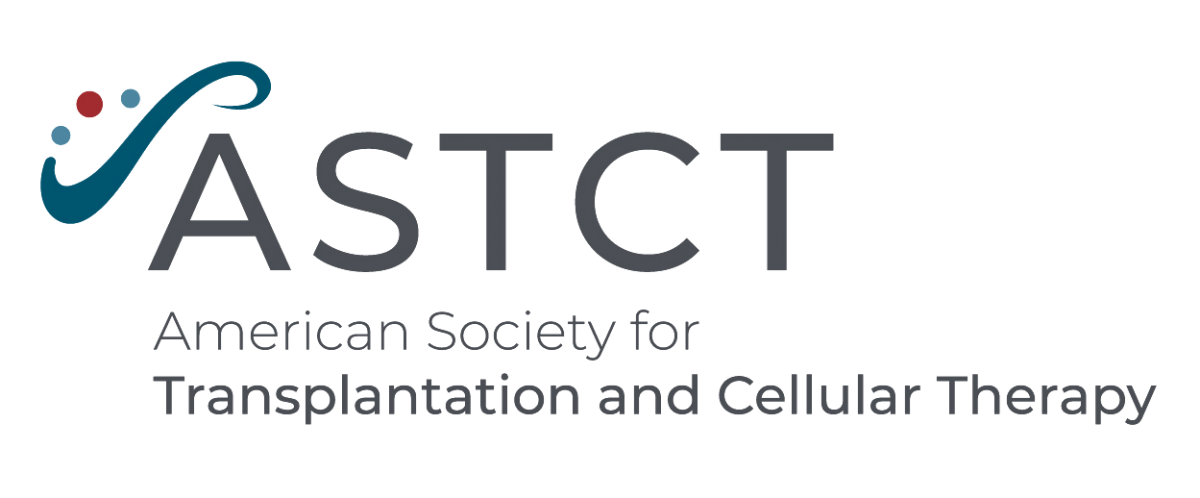
The American Society for Transplantation and Cellular Therapy (ASTCT), formerly known as the American Society for Blood and Marrow Transplantation, is a professional society of more than 2,200 healthcare professionals and scientists from over 45 countries who are dedicated to improving the application and success of blood and marrow transplantation and related cellular therapies. ASTCT strives to be the leading organization promoting research, education and clinical practice to deliver the best, comprehensive patient care.
